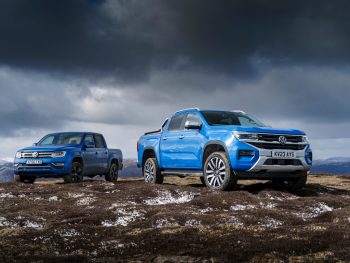HMRC is to start classing most double-cab pickups as company cars for tax purposes, reflecting their growing use as lifestyle vehicles rather than job-need.

The new tax treatment takes effect from 1 July 2024, although there will be a transition period.
Under the current system, HMRC uses the VAT approach for double cab pickups, which is differentiated based on payload, with anything under one tonne classified as a car, and anything a tonne and over as a van.
However, from July, tax treatment will be decided on a two-part test that will establish whether the construction is primarily suited for “the conveyance of goods or burden of any description” and whether any modifications have been made, as set out in HMRC’s Employment Income Manual.
It’s expected that most, if not all, double cab pickups will be classified as cars when calculating the benefit charge – because “typically these vehicles are equally suited to convey passengers and goods and have no predominant suitability”.
HMRC said the previous tax treatment, while seen as a “pragmatic way of resolving the primary suitability and classification of double cab pickups”, was at odds with the judgment reached by the Court of Appeal in Payne & Ors (Coca-Cola) v R & C Commrs in 2020.
In the case, Coca-Cola lost its fight against HMRC’s judgment that its Volkswagen Kombis and Vauxhall Vivaros on fleet should be classed as company cars, not vans, and taxed accordingly. The case centred around the second row of seats and rear passenger window(s) in the vehicles, which in the view of the Court of Appeal judges, could have been used to carry people.
Transitional arrangements
While the new tax treatment comes into effect from 1 July 2024, HMRC has said that transitional arrangements will apply for employers that have purchased, leased, or ordered a double cab pickup before this date. This will ensure they can rely upon the previous treatment until 5 April 2028, or if they dispose of the vehicle or the lease expires, if this comes sooner.
HMRC has also set out examples that show double-cab pickup that are not of a construction primarily suited for the conveyance goods or burden;
Example 1 – Employer A purchased a double cab pickup on 14 September 2024. As purchases on or after 1 July 2024 would be subject to the new rules, in this example the vehicle would be classified as a car and a car benefit charge would arise.
Example 2 – Employer B leased a double cab pickup on 10 April 2024. As this was leased before 1 July 2024, the previous rules continue to apply for Employer B until the earlier of the lease expiry, or 5 April 2028.
Example 3 – Employer C purchased a double cab pickup on 10 July 2023. This was subsequently traded in on 1 November 2024 for another double cab pickup. The previous rules apply to the first vehicle for Employer C until the trade in point on 1 November 2024. As the new double cab pickup was purchased after 1 July 2024 it will represent a car under the new rules and a car benefit charge would arise.
Example 4 – Employer D placed an order for a double cab pickup on 5 January 2024, but this was not available to the employer until 2 September 2024. As the agreement was entered into before 1 July 2024, the previous rules continue to apply for Employer D until the earlier of disposal, lease expiry, or 5 April 2028.

